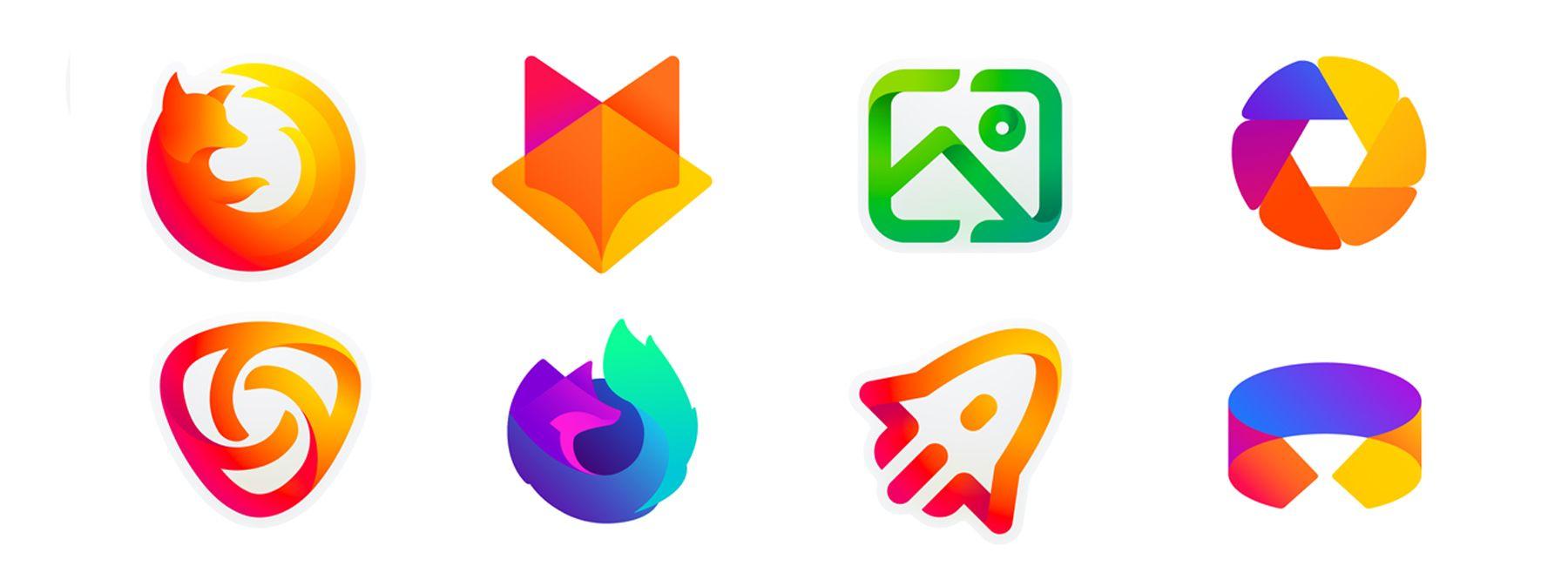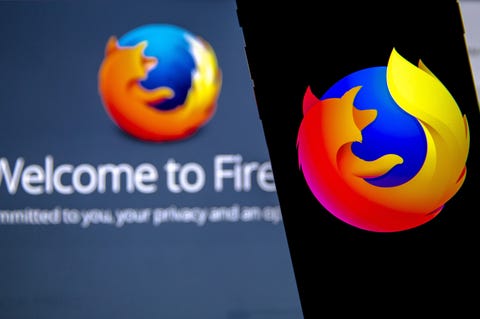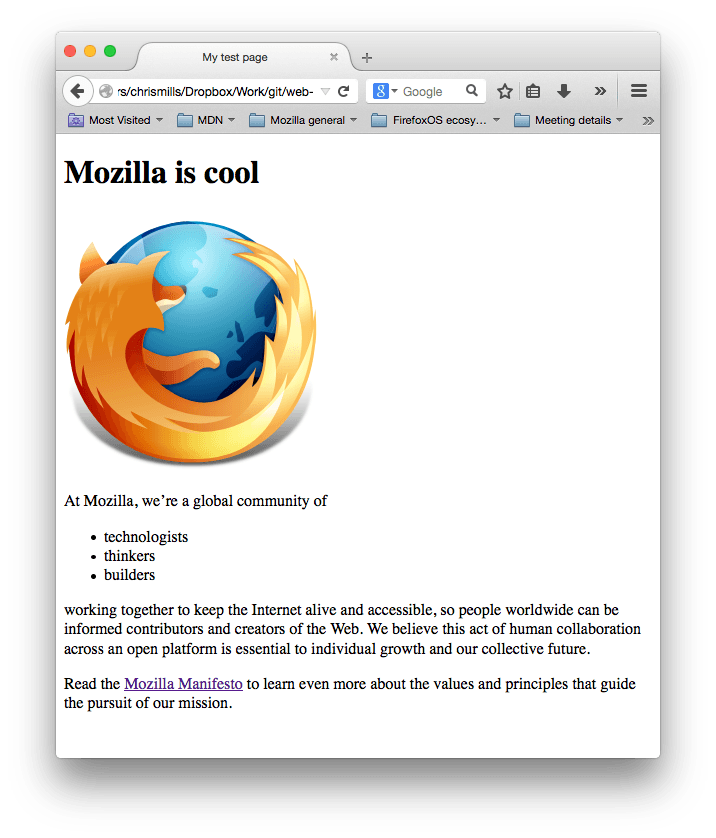Mozilla Firefox Meaning
Firefox will start switching browser users to Cloudflare's encrypted-DNS service today and roll out the change across the United States in the coming weeks.
'Today, Firefox began the rollout of encrypted DNS over HTTPS (DoH) by default for US-based users,' Firefox maker Mozilla said in an announcement scheduled to go live at this link Tuesday morning. 'The rollout will continue over the next few weeks to confirm no major issues are discovered as this new protocol is enabled for Firefox's US-based users.'
DNS over HTTPS helps keep eavesdroppers from seeing what DNS lookups your browser is making, potentially making it more difficult for Internet service providers or other third parties to monitor what websites you visit. As we've previously written, Mozilla's embrace of DNS over HTTPS is fueled in part by concerns about ISPs monitoring customers' Web usage. Mobile broadband providers were caught selling their customers' real-time location data to third parties, and Internet providers can use browsing history to deliver targeted ads.
Mozilla Firefox Mozilla Firefox is a free web browser that will allow you to access the web. It's an Open Source alternative to Microsoft's Internet Explorer and has a wide variety of plugins available to allow you to customize it further. Mozilla Firefox can be downloaded for free at Firefox.com. Firefox was created by Mozilla as a faster, more private alternative to browsers like Internet Explorer, and now Chrome. Today, our mission-driven company and volunteer community continue to put your privacy above all else. Your privacy comes first. Meaning of Mozilla. What does Mozilla mean? Firefox’s feature set includes tabbed browsing, an array of extensions, themes and add-ons to enable more functionality within the browser, as well as a variety of security measures that help the browser compete with Internet Explorer for customers. Firefox browser, or simply Firefox, is a web browser and Mozilla's flagship software product. It is available in both desktop and mobile versions. Firefox uses the Gecko layout engine to render web pages, which implements current and anticipated web standards. As of late 2015, Firefox had approximately 10-11% of worldwide usage share of web browsers, making it the 4th most-used web browser.
Wireless and wired Internet providers are suing the state of Maine to stop a Web-browsing privacy law that would require ISPs to get customers' opt-in consent before using or sharing browsing history and other sensitive data. The telecom companies already convinced Congress and President Trump to eliminate a similar federal law in 2017.
ISPs protested encrypted-DNS plans
Mozilla has not been deterred by a broadband-industry lobbying campaign against encrypted DNS. The ISPs' lobbying targeted Google's plan for the Chrome browser, even though Firefox is deploying DNS over HTTPS more aggressively.
With Web users already being tracked heavily by companies like Google and Facebook, Mozilla has said it is embracing DNS over HTTPS because 'we don't want to see that business model duplicated in the middle of the network' and 'it's just a mistake to use DNS for those purposes.'
Advertisement'Today, we know that unencrypted DNS is not only vulnerable to spying but is being exploited, and so we are helping the Internet to make the shift to more secure alternatives,' Mozilla said in its announcement today. 'We do this by performing DNS lookups in an encrypted HTTPS connection. This helps hide your browsing history from attackers on the network, [and] helps prevent data collection by third parties on the network that ties your computer to websites you visit.'
While Firefox's encrypted DNS uses Cloudflare by default, users can change that to NextDNS in the Firefox settings or manually enter the address of another encrypted-DNS service. Firefox users can also disable the new default setting if they don't want to use any of the encrypted-DNS options.
Mozilla has said it is open to adding more encrypted-DNS providers as long as they meet a list of requirements for privacy and transparency and don't block or filter domains by default 'unless specifically required by law in the jurisdiction in which the resolver operates.'
Mozilla isn't turning encrypted DNS on automatically outside the United States. But users outside the US and US-based users who haven't gotten the new default setting yet can enable DNS over HTTPS in the Firefox settings. To do that, go to Firefox 'Preferences,' then 'General,' scroll all the way down to 'Network Settings,' click 'Settings,' then click 'Enable DNS over HTTPS.' After clicking that box, you can choose Cloudflare, choose NextDNS, or enter a custom server. There's a list of encrypted-DNS servers at this Github page.
Encrypted DNS will not be turned on by default in certain cases, such as when Firefox detects that enterprise policies have been set on the device or when it detects the presence of parental controls. Those and other questions about how DNS over HTTPS works in Firefox are answered in this FAQ.

Google's plan for encrypted DNS in Chrome—which is still in the experimental phase and hasn't been deployed to everyone—is a little different from Mozilla's. Instead of automatically switching users to a DNS provider chosen by Google, Chrome sticks with whichever DNS provider the user has selected. If the user-selected DNS provider offers encrypted lookups and is in this list of providers, Chrome automatically upgrades the user to that DNS provider's encrypted service. If the user-selected DNS provider isn't in the list, Chrome makes no changes.
A web browser takes you anywhere on the internet, letting you see text, images and video from anywhere in the world.
The web is a vast and powerful tool. Over the course of a few decades, the internet has changed the way we work, the way we play and the way we interact with one another. Depending on how it’s used, it bridges nations, drives commerce, nurtures relationships, drives the innovation engine of the future and is responsible for more memes than we know what to do with.
It’s important that everyone has access to the web, but it’s also vital that we all understand the tools we use to access it. We use web browsers like Mozilla Firefox, Google Chrome, Microsoft Edge and Apple Safari every day, but do we understand what they are and how they work? In a short period of time we’ve gone from being amazed by the ability to send an email to someone around the world, to a change in how we think of information. It’s not a question of how much you know anymore, but simply a question of what browser or app can get you to that information fastest.
In a short period of time, we’ve gone from being amazed by the ability to send an email to someone around the world, to a change in how we think about information.
How does a web browser work?

A web browser takes you anywhere on the internet. It retrieves information from other parts of the web and displays it on your desktop or mobile device. The information is transferred using the Hypertext Transfer Protocol, which defines how text, images and video are transmitted on the web. This information needs to be shared and displayed in a consistent format so that people using any browser, anywhere in the world can see the information.
Sadly, not all browser makers choose to interpret the format in the same way. For users, this means that a website can look and function differently. Creating consistency between browsers, so that any user can enjoy the internet, regardless of the browser they choose, is called web standards.
When the web browser fetches data from an internet connected server, it uses a piece of software called a rendering engine to translate that data into text and images. This data is written in Hypertext Markup Language (HTML) and web browsers read this code to create what we see, hear and experience on the internet.

Hyperlinks allow users to follow a path to other pages or sites on the web. Every webpage, image and video has its own unique Uniform Resource Locator (URL), which is also known as a web address. When a browser visits a server for data, the web address tells the browser where to look for each item that is described in the html, which then tells the browser where it goes on the web page.
Cookies (not the yummy kind)
Websites save information about you in files called cookies. They are saved on your computer for the next time you visit that site. Upon your return, the website code will read that file to see that it’s you. For example, when you go to a website, the page remembers your username and password – that’s made possible by a cookie.
There are also cookies that remember more detailed information about you. Perhaps your interests, your web browsing patterns, etc. This means that a site can provide you more targeted content – often in the form of ads. There are types of cookies, called third-party cookies, that come from sites you’re not even visiting at the time and can track you from site to site to gather information about you, which is sometimes sold to other companies. Sometimes you can block these kinds of cookies, though not all browsers allow you to.
When you go to a website and the page remembers your username and password – that’s made possible by a cookie.
Understanding privacy
Mozilla Firefox For Microsoft
Nearly all major browsers have a private browsing setting. These exist to hide the browsing history from other users on the same computer. Many people think that private browsing or incognito mode will hide both their identity and browsing history from internet service providers, governments and advertisers. They don’t. These settings just clear the history on your system, which is helpful if you’re dealing with sensitive personal information on a shared or public computer. Firefox goes beyond that.
Firefox helps you be more private online by letting you block trackers from following you around the web.
Making your web browser work for you
Most major web browsers let users modify their experience through extensions or add-ons. Extensions are bits of software that you can add to your browser to customize it or add functionality. Extensions can do all kinds of fun and practical things like enabling new features, foreign language dictionaries, or visual appearances and themes.
Mozilla Firefox Download

Mozilla Firefox Meaning
All browser makers develop their products to display images and video as quickly and smoothly as possible, making it easy for you to make the most of the web. They all work hard to make sure users have a browser that is fast, powerful and easy to use. Where they differ is why. It’s important to choose the right browser for you. Mozilla builds Firefox to ensure that users have control over their online lives and to ensure that the internet is a global, public resource, accessible to all.

